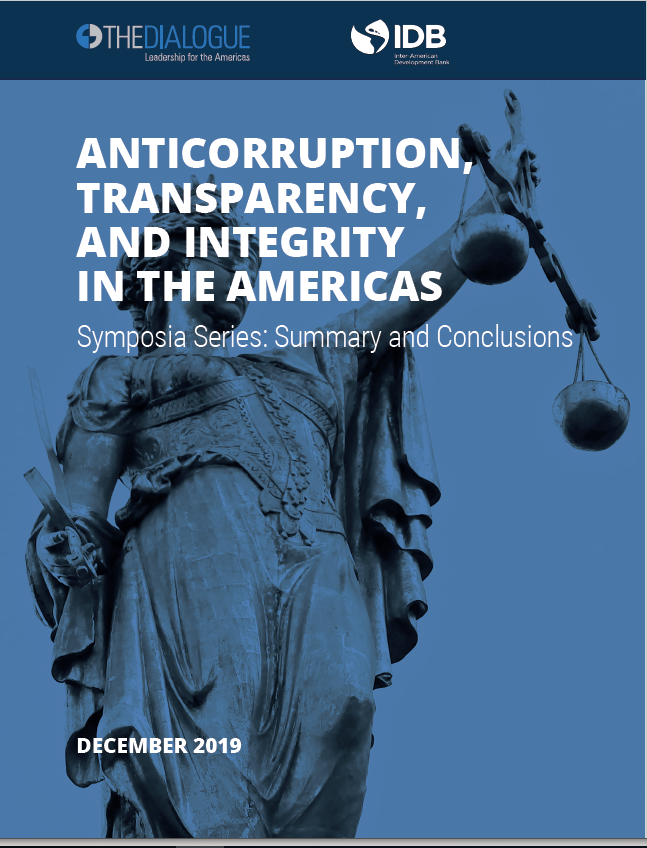The Washington Post & the OAS Secretary General
The OAS needs to be reformed, but the changes need to emerge from accurate analysis of the problems confronting both Latin America and the OAS.
Between February and May 2019, the Inter-American Dialogue’s Peter D. Bell Rule of Law Program and the Inter-American Development Bank hosted a series of events focused on addressing issues of corruption in the Americas. The Symposia Series on “Anticorruption, Transparency and Integrity in the Americas” convened preeminent regional experts and policymakers to identify lessons learned from recent corruption cases, analyze continued challenges, and outline the agenda for future reform.
Corruption is a longstanding challenge in the Americas, hampering development, undermining citizens’ trust in their governments, and even, in some of the most egregious cases, costing lives. High-profile grand corruption scandals in recent years prompted heightened citizen demands for transparency and accountability. In at least some cases, judicial and political systems began to respond to these demands, and in several countries citizens elected presidents on the promise that they would root out graft. Against this backdrop, the Symposia Series took stock of regional developments and prospects by focusing on three critical themes: corruption prosecutions in comparative perspective; political finance and state capture; and the anticorruption mandates of new governments in Latin America.
The experiences and analysis of these four leading prosecutors point to several factors that characterize successful grand corruption prosecutions:
1. Prosecutorial independence and political support.
2. Appropriate legal frameworks.
3. Sufficient investigative capacity.
4. International prosecutorial cooperation.
5. Robust civil society and independent media.
The discussion among the experts confirmed that political finance remains a critical vector of vulnerability in the region’s efforts to combat corruption, as evidenced by the Odebrecht case among others. In order to clean up political finance, several things need to be taken into account:
1. The need for better enforcement of existing political finance legislation.
2. The public procurement – political finance link.
3. The relative utility of disclosure versus limits on campaign finance.
Our speakers offered differing national and political perspectives, but each of them conveyed a strong awareness of the need to deliver on their respective government’s pledges to combat corruption. With varying degrees of specificity, they all presented plans of action that addressed both the accountability and prevention sides of the equation.
The OAS needs to be reformed, but the changes need to emerge from accurate analysis of the problems confronting both Latin America and the OAS.
Although politics has cyclical features, and ideology is sometimes a factor in choices made by Latin American voters, the left-right labels obscure more than they illuminate.
Peruvians want an evolution, not a revolution.
